Investigating South Africa’s infamous Life Orientation textbook that gets students, past and present, riled up. Students share what they want out, what they want in, and what confuses them to the core.
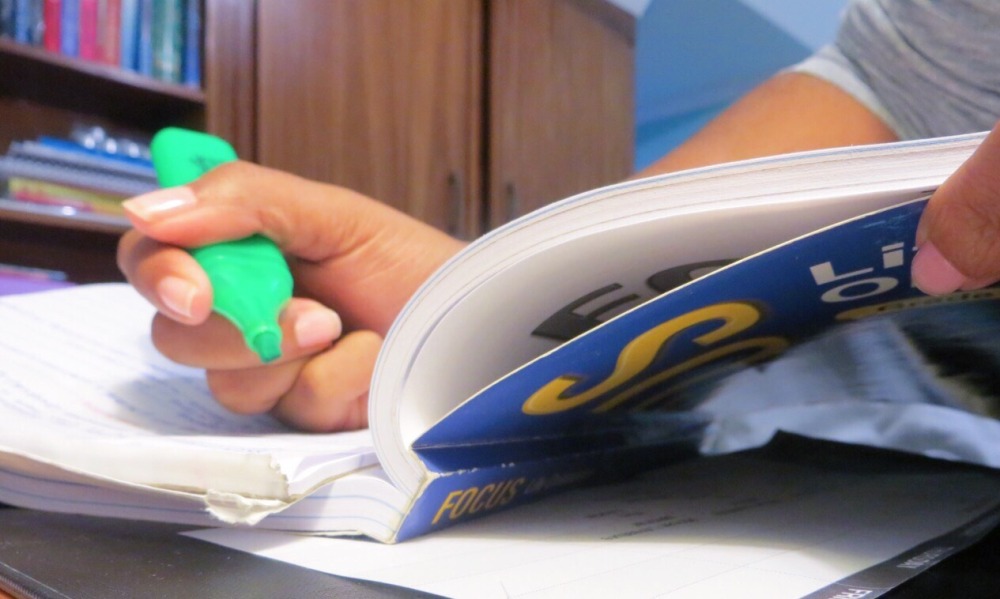
My curiosity for the Life Orientation (LO) textbook started in 2014. I was still in high school and a peer, Emma Garschagen, brought my attention to the frightening realities of a textbook my grade had barely opened. Sexism and harmful gender stereotypes littered the pages of our FOCUS grade 11 Life Orientation textbook. Emma came to an accurate summary of the stereotypes presented: “women are victims who need to be helped, and men are never abused or weaker than women.” She stated,
“As a woman, I am offended.
As a South African, I am angered.
As a human, I am saddened.”
Flash-forward to 2016 – I was in my first year of university, happy to be leaving the burdens of high school behind me, enjoying the freedom that university education brings. Students all over social media were discussing a page in the FOCUS grade 10 Life Orientation textbook. Victim-blaming was printed down on paper nonchalantly, asking students to perpetuate rape culture for marks. In the example given, ‘Angie’ goes to a party and gets raped. The LO textbook then asks students what Angie did to encourage this “sexual intercourse”. Yeah, that’s right, not “rape” … “sexual intercourse”.
Shivers.
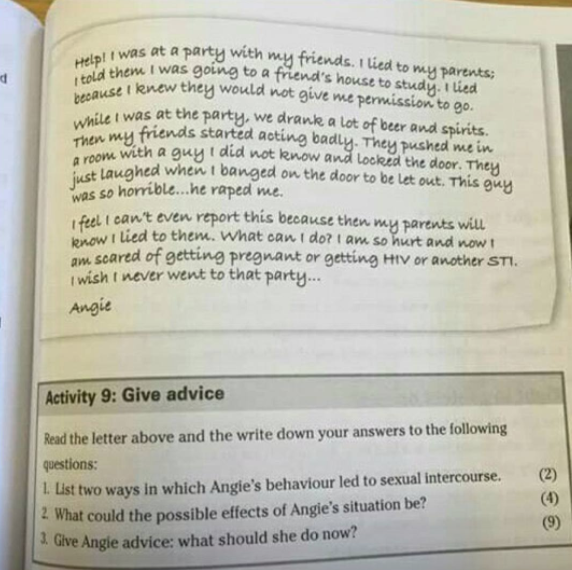
source: Equal Education Facebook page (https://www.facebook.com/equal.education/)
As a result, a well-supported campaign was started to “undo the damage of [a] rape culture promoting textbook”. Students tweeted about the sketchy findings in their textbooks, addressing Gauteng MEC for public education, Panyaza Lesufi, directly for allowing the textbook to be published. Equal Education, an organisation that “advocates for quality and equality in the South African education system”, argues that, “from a young age girls are being taught to blame themselves if they get raped” and that we cannot condone that.
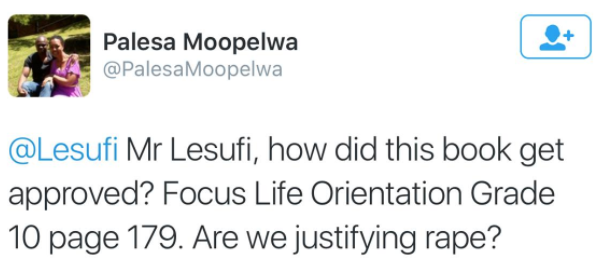
LO teacher at a private, all-girl’s high school, Natalie Jones*, highlights that:
“Important skills are taught [in Life Orientation] and important information is conveyed to the students. We must bear in mind that not all our children have access to information and learning of skills as readily as students in more affluent areas.”
So what exactly are we teaching the South African youth? Specifically, matrics – individuals on the brink of adulthood, ready to become independent thinkers, and navigate a world outside of the warm, sheltered school halls.
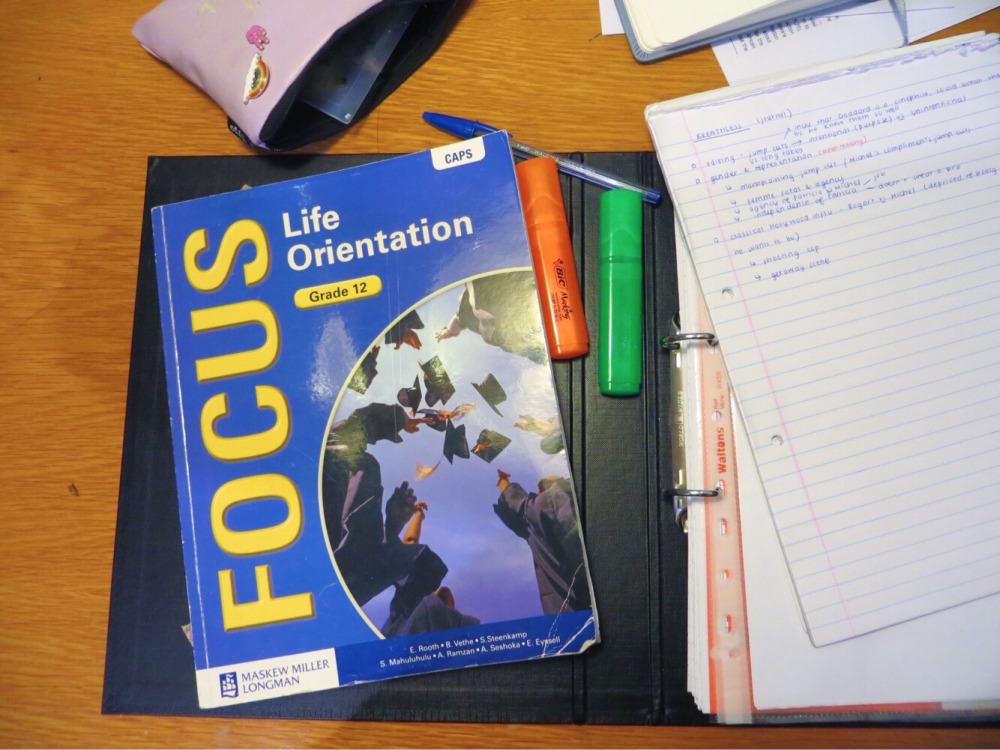
The matrics of 2017 are still struggling with the controversial LO textbook. Some schools don’t even teach out of them anymore because of the misleading content. Many LO teachers take the subject into their own hands by hosting discussions with guest speakers to teach more relevant and inclusive content. Several teachers distribute their own notes, inspired by the textbook, which is more appropriate and helpful. Some just use photocopies of exerts from the textbook that they deem acceptable. However, the majority continue to use the outdated, problematic textbook: Via Afrika, FOCUS or SpotOn.
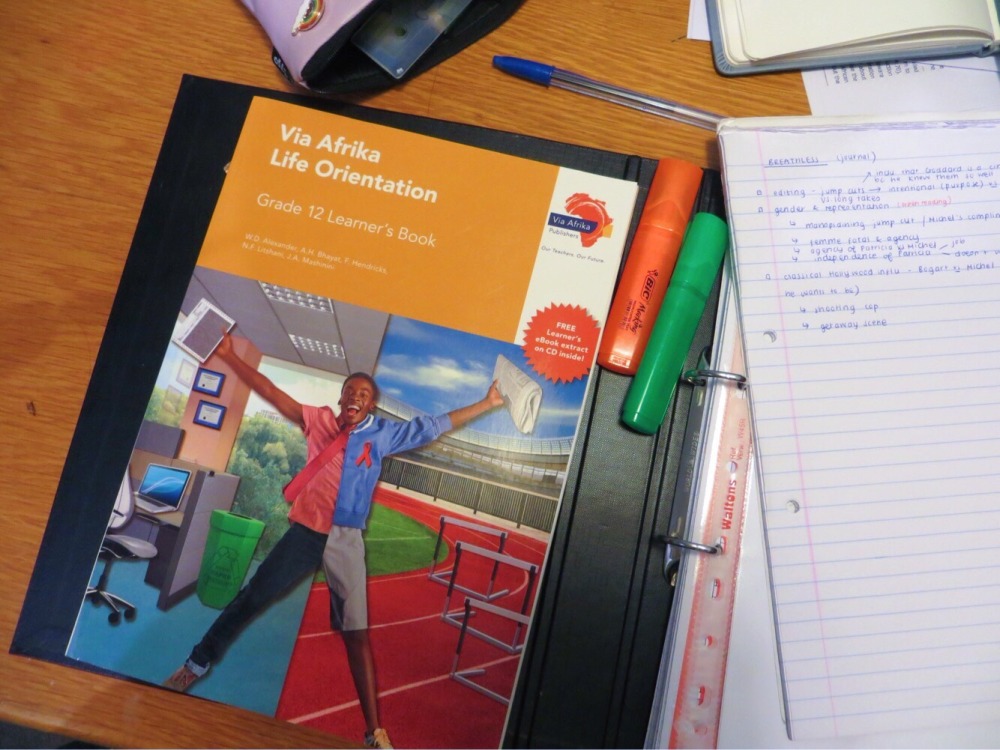
The FOCUS and Via Afrika textbooks have recurring content focusing mainly on physical education. A large portion of the textbook requests for students to follow their activities every single term. However, some of the content is useful, covering topics like “worker’s rights”, “democracy”, “responsible citizenship”, and “career choices”.
Nevertheless, matrics find the rest “redundant”. Katherine, a matric student at an all-girls’ private school, expresses that “we know [all of it] at this point”. Amy, matric student at San Souci Girls’ High School, says “we’ve been doing those things since the beginning of time”. “Those things” being simple topics such as how to manage stress, “communication skills,” “relationship building”, “conflict resolution”, and “study skills”.
Yet, Josh, from Rondebosch Boys’ High School, acknowledges that not many high school students in South Africa are “privileged enough to get taught certain morals […] by their parents from a young age”, recognizing that “LO can be of huge benefit”.
In 2015, IOL reported that students were calling for Life Orientation to start teaching sexual education outside of heterosexual sex. From grade 7, Life Orientation covers topics of sexuality and the social pressures surrounding it, yet, does not represent the LGBTQI+ community, as if to deny the existence of a non-heteronormative sexualities.
Emma Garschagen, now a second year student at UCT, reflects back at the Life Orientation syllabus and recalls that
“The textbooks alluded to the concept of safe sex and the dangers of inadequate protection, but they left a large gap for teachers to fill in […] The absence of detail in the text allows for a massive bias in the teaching style of such a taboo subject, and this is clearly a big problem in conservative learning environments.”
Sex Workers Education and Advocacy Taskforce’s (SWEAT) psychosocial manager, Dr Gordon Isaacs says that
“If homosexual sex education was demystified and clearly articulated as one of the many ranges of sexual expression and identity in schools, gay and curious pupils would be able to learn about it in a safe environment”
Elijah Mhlanga, Spokesperson for the Department of Basic Education spoke to Cape Talk in July 2016 publically condemning the content surrounding rape culture. Mhlanga says the publishers have corrected the content and asks teachers to be “conscious of such material when teaching” and point out that “the content was wrong for use”.
It’s quite clear that young voices in South Africa can actually make a significant and important change. So from the students themselves, what would they like to change? What needs an in, and what needs a very serious boot out the front door?
NO
to harmful stereotypes
to an excessive amount of PE
to heteronormativity
YES
to teaching gender identity, sexuality and their respective spectrums
to a comprehensive understanding of feminism and how it varies for different womxn with different intersecting identities
to understanding the importance of intersectionality
to having proper LGBTQI+ representation
to having more content focused on a diversity of people and their stories
Hopefully it does not take another viral image to make their voices heard.
___________________________
* name has been changed to protect the interviewee’s identity
Photographs by Caroline Petersen
One Comment Add yours